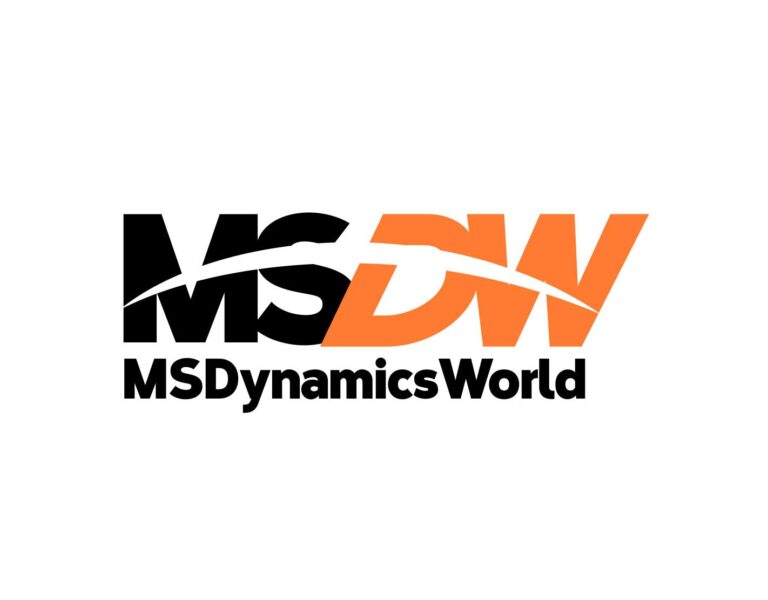If you’re thinking about building a website for the first time, you’re likely to run into a question: do you need web hosting or a website builder?
The quick answer: you don’t necessarily have to choose one or the other. Web hosting companies host your site’s files so they are accessible online, while website builders are software services for creating websites. For most new users, the best solution is to choose a hosting company and a website builder.
In this post, we’ll dive into what the terms website hosting and website builder mean in more detail, explain how they work together, and help you choose the best services and options for you based on your skills, budget, and long-term goals.
What is web hosting?
Web hosting is a service that stores your website’s files, such as code, images, and content, on a server. When someone types in your domain name, this server sends the files to their browser, allowing them to view your site.
How web hosting works
Think of web hosting like renting an empty apartment. This server is your space, and you can use it to store your site’s files, images, text, design elements, and more.
You also get full control over how you build your site. You can install a free tool like WordPress or write code using HTML, CSS, and JavaScript to create your website. You’re not locked into a single system.
Tip: Different hosting providers offer different types of hosting plans — shared, VPS, cloud, and dedicated. Learn more about each option and explore which one suits your site’s size, budget, and technical needs.
What is a website builder?
A website builder is an all-in-one platform for building, customizing, and hosting a website. You get a drag-and-drop editor, pre-designed themes, technical support, and built-in hosting in a single subscription.
How does a website builder work?
A website builder offers a more user-friendly interface for creating a website.
Log in to your platform of choice and pick a theme for your site. Then, use the visual editor to design each page with text, images, buttons, custom code, and other features.
Note: A website builder isn’t the same as a content management system (CMS). A CMS gives you a flexible backend to manage your website’s content, themes, and plugins, but you’re responsible for setup, hosting, updates, and security. In contrast, a website builder manages everything automatically. In short, a CMS offers more control and customization, while a website builder offers more convenience and ease of use.
Common website builders to explore
Here are three platforms to see how a website builder works:
WordPress.com: Offers managed WordPress hosting and a website builder functionality, all under one roof.
Squarespace: Design your website with clean templates using built-in tools for blogging, ecommerce, and scheduling.
Wix: This website builder offers many templates and AI tools to build your site quickly. It’s suitable for small businesses, freelancers, and personal brands for designing websites without coding.
Now that we’ve discussed the basics of website hosting and builders, let’s discuss how they’re similar and where they differ.
Similarities between website hosting and builders
At first glance, web hosting and website builders seem totally different, but they share a lot of common ground. Before we discuss what sets them apart, let’s look at what both options help you do behind the scenes.
Store and manage all your website files
Your website is made up of many files like text, images, code, a database, and more. All this content has to be stored somewhere.
Website hosting stores these files on a server and gives you direct control over managing them. You can access folders, upload assets, and organize everything the way you want.
Website builders, on the other hand, store these files on their own server. You can’t access or organize them directly, but they’re stored safely and displayed to visitors when they land on your site.
Handle secure domain connections
Your domain name (like example.com) should be linked to the server where your website’s files are stored. You can do this through DNS settings.
With traditional hosting, you can connect your domain manually by updating DNS records through the registrar. Website builders simplify the process. They often guide you step-by-step or handle it automatically if you purchase the domain through them.
Either way, hosting services and builders ensure your website shows up when someone visits your domain.
Keep your site secure
Uptime, backups, and updates are critical to your website’s maintenance and security.
Whether you’re using a hosting provider or a website builder, the platform you choose is responsible for keeping your website running smoothly and securely.
Most hosting services offer tools like SSL certificates, regular backups, malware scanning, DDoS protection, and server firewalls. Website builders also offer similar protections, but you don’t need to configure anything manually.
Web hosting vs. website builder: how are they different
Both of these approaches have a similar end goal — getting your website online, but the way they work is quite different.
Let’s break down where web hosting and website builders go their separate ways, and what those differences mean for you.
Level of control
Quick answer: Web hosting lets you modify anything, like plugins, code, and more. Website builders limit changes and customizations to what the platform offers.
Web hosting gives you complete control over how your website works behind the scenes.
You can choose a hosting software like WordPress, set up your website, add plugins or themes, and customize your code. This setup works well for developers and teams looking to build custom features on their sites.
With web hosting, you can decide on different aspects like speed, security, and how much server power your site gets.
On the other hand, website builders give you a closed environment.
You can change the design and use the add-ons available on the platform, however, it limits the extent to which you can tweak your site. Basically, you can’t customize the underlying code of your site.
With this approach, it’s much easier to design a website. However, if you need a feature that the platform doesn’t offer, you can’t add it yourself.
Ease of use
Quick answer: Web hosting can require multiple steps to complete the setup. Website builders provide a quick workflow to get started.
With a hosting service, you need to manage multiple systems manually. You have to:
Set up your hosting account.
Install a CMS like WordPress.
Back up your site manually.
Manage files through FTP.
This approach requires more technical involvement at every step. It’s more suited for developers who can manage these tasks independently, but it can be frustrating for those who don’t have the necessary technical expertise.
That’s where website builders offer convenience to anyone who doesn’t know the technical side of web development.
A website builder gives you everything in one place:
Themes and templates.
Design tools.
Security.
Hosting.
It requires a shorter learning curve, and you don’t need to write code.
Speed to launch
Quick answer: It can take more time to launch a website if your web hosting doesn’t include a website builder or CMS. Choosing a hosting option with an included website builder make it easier to design and publish websites.
Launching your site takes many steps when you use a hosting service.
You have to pick a hosting platform, buy a domain, install software, and customize your site. It can take a few days to finish your design, especially if you’re figuring everything out as you go forward.
In contrast, website builders are made for fast results.
Most builders offer a user-friendly interface and guide you through the process of designing a site. Pick a template, add your copy and images, and publish when you’re ready. For one-pager sites, you can even go live the same day.
Cost structure
Quick answer: Web hosting alone can look cheap up front, but you pay extra as your website grows. Website builders roll everything into one bill: higher entry price, simpler bookkeeping.
Using a hosting service means you pay separately for different elements — themes, plugins, extra storage, and more. While basic hosting plans seem cheap at first, the total cost can add up once you factor in upgrades or outside help.
Website builders charge a bundled price inclusive of hosting, design tools, support, and security. Choose from tiered plans based on your requirements.
While builders look pricier upfront, they simplify your billing process. Plus, the cost of hosting plans can add up when you factor in upgrades in the long term.
can be tough because you might have to rebuild your site from scratch.
Make the right choice
Choosing web hosting is ideal when you:
Need complete control over your site’s code, plugins, and server settings to work with a custom tech stack.
Want to create a one-of-a-kind design or special features that off-the-shelf templates can’t deliver.
Expect to see significant traffic spikes or reach international audiences, and need the flexibility to adjust your site’s bandwidth.
Have in-house technical expertise to manage updates and troubleshoot issues.
Website builders are ideal when you:
Want to go live with your site quickly with a minimal setup (for side hustles, portfolios, or small businesses).
Prefer a simplified billing process with fewer moving parts and everything like hosting, analytics, and CMS in one package.
Have limited technical knowledge and no time to learn web development and maintenance tasks,
WordPress.com offers the best of both worlds
With WordPress.com, you don’t have to worry about choosing one or the other option.
WordPress.com uses the same powerful WordPress engine that powers 40% of all websites globally. This means you get the familiarity, flexibility, and plugin support of open-source WordPress, without too much manual effort.
Here’s what you can do with WordPress.com:
Easy design with block editor and themes
Use the block editor to design pages by simply dragging and dropping elements. Create custom block styles to build visual consistency across your site.
Plus, you can access hundreds of professionally designed themes for multiple industries and use cases. These themes automatically adapt to different screen sizes and don’t require any coding.
Thousands of plugins for added features
Pick tools from the WordPress plugin marketplace to improve your site and expand its functionality. You can add plugins to:
Improve SEO.
Create forms.
Connect to CRM.
Build a multilingual site.
Fully managed hosting and security
Unlike the self-hosting approach, you don’t need to worry about setting up servers, installing SSL certificates, or handling updates.
WordPress.com takes care of all the maintenance tasks, like site security, uptime monitoring, automatic backups, and performance optimization. You can focus entirely on your website design and business growth.
All WordPress.com websites also come with built-in security features like SSL certificates, domain privacy, spam protection, malware detection, DDoS protection and mitigation, and more.
24/7 support and safe testing tools
WordPress.com offers real human support around the clock on every paid plan. Or get free advice from experts in the active user community.

Plus, you can experiment within your site in staging environments to test changes privately before going live.
Built to grow with your website
Whether you’re building a small website or have big dreams for the future, WordPress.com grows with your goals.
You don’t need to switch platforms even if you want to switch your approach from no-code to code. The platform has everything you need to customize and enhance your site.
Pick the best path forward
Rather than pitting website hosting against website builders, now you know you can have both together (and WordPress.com delivers both with one platform). You get a builder’s ease and a hosting provider’s flexibility without the hassle of migrating your site to a different platform.
Ready to get started? Build and host your site WordPress.com today.
Original Post https://wordpress.com/blog/2025/06/28/web-hosting-vs-website-builder/







